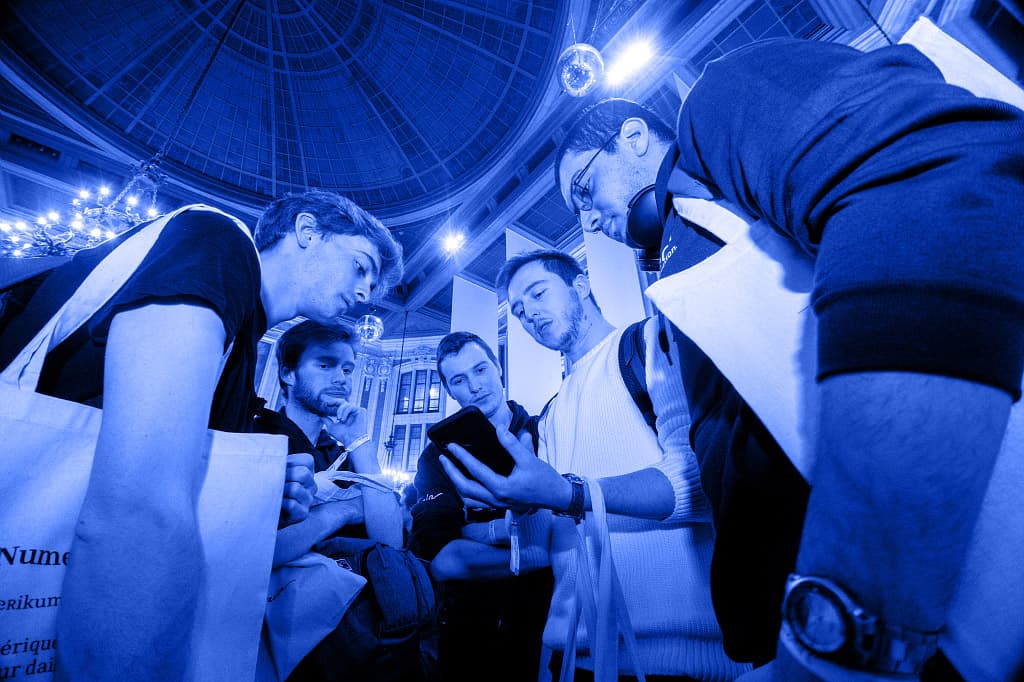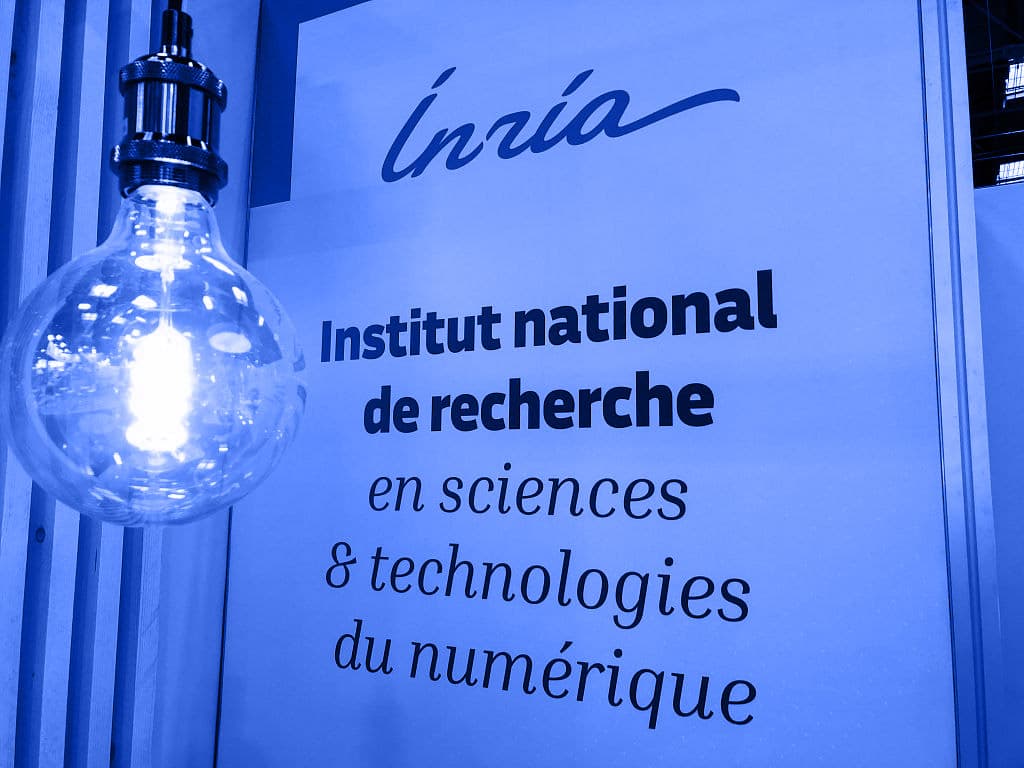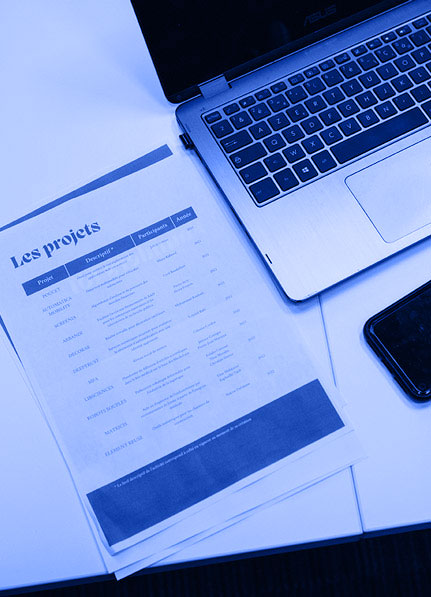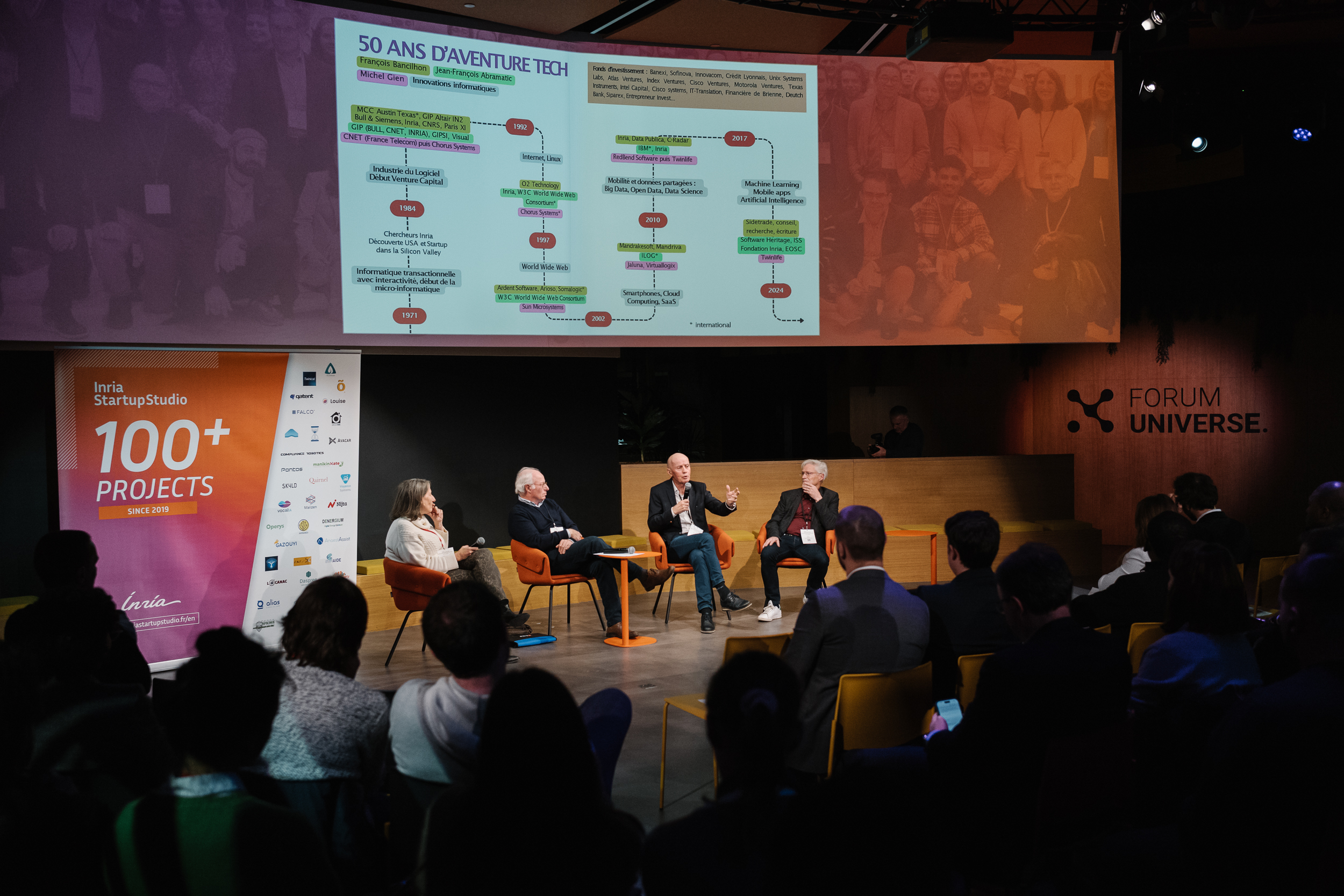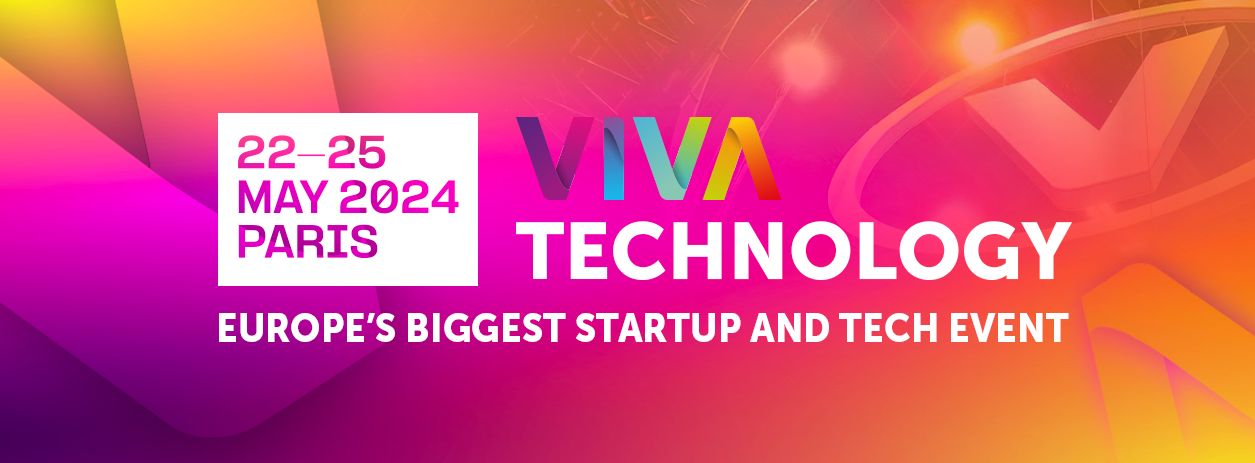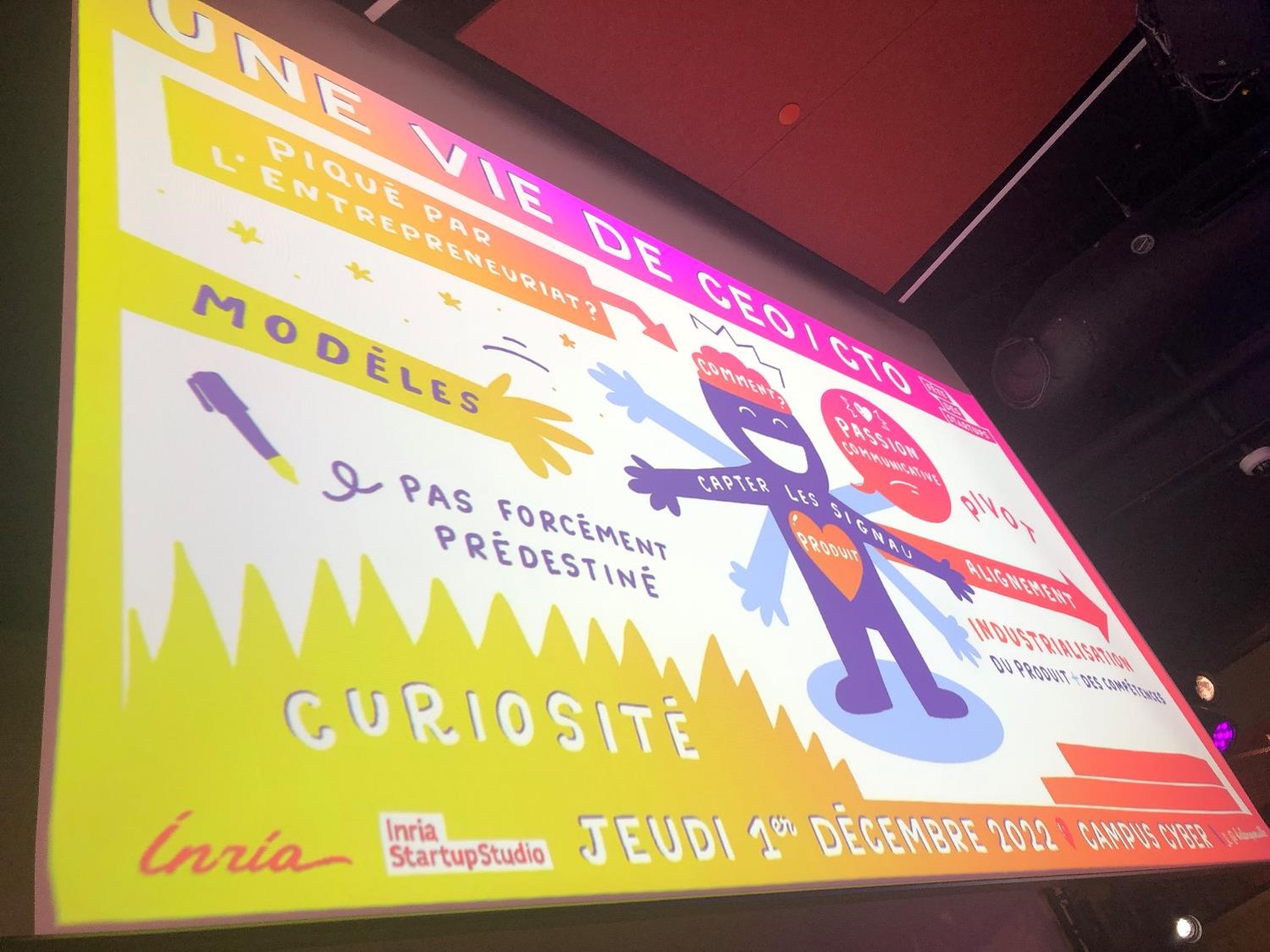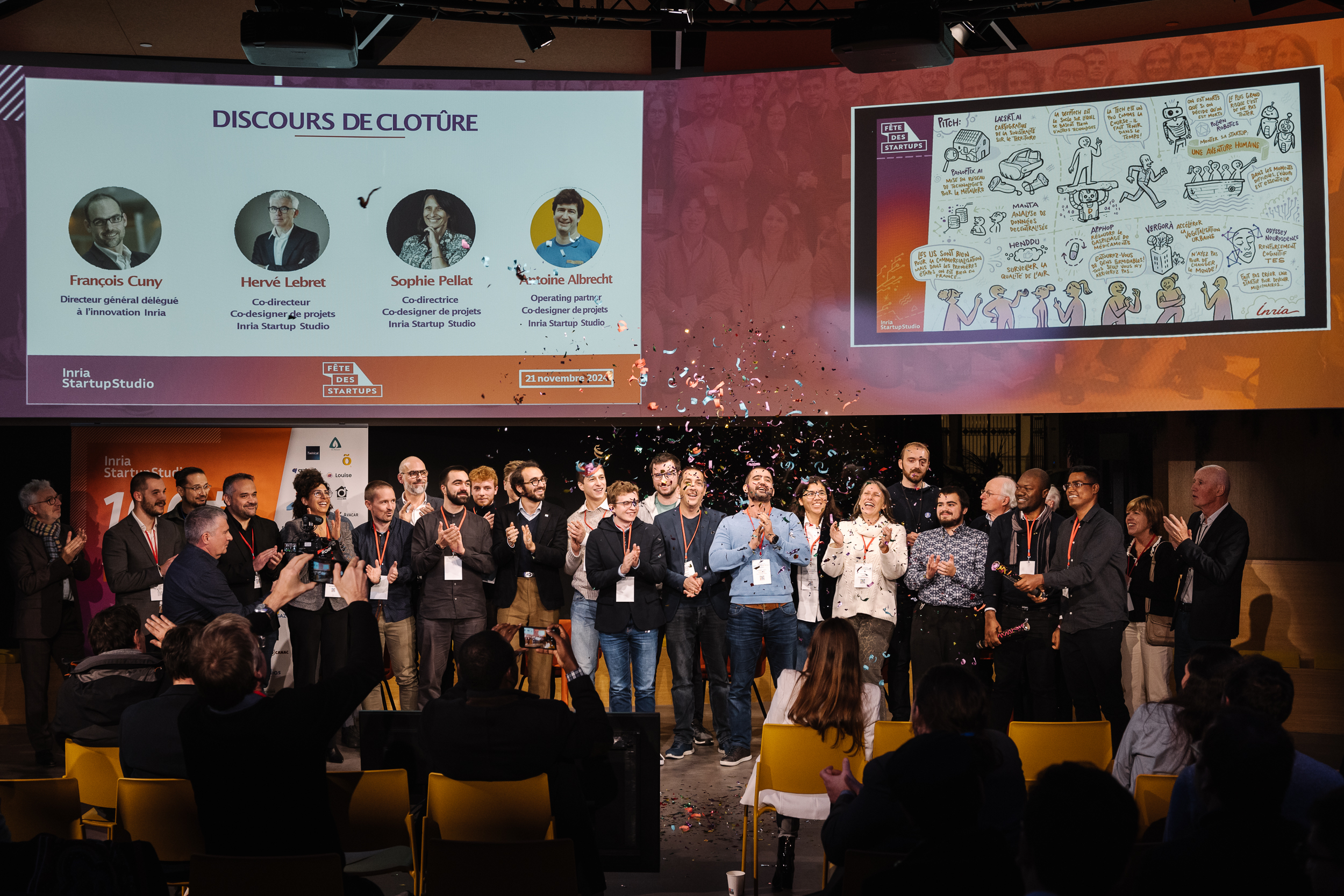
Fête des startups 2024: when Inria supports researchers on the road to entrepreneurship
Each year, Inria Startup Studio brings together its ecosystem, from researchers in the process of setting up their startup to those who are currently in or have already left the program, not forgetting investors and other mentors, to share their experiences and views on these entrepreneurial experiences, which are rich…
Each year, Inria Startup Studio brings together its ecosystem, from researchers in the process of setting up their startup to those who are currently in or have already left the program, not forgetting investors and other mentors, to share their experiences and views on these entrepreneurial experiences, which are rich in discoveries and challenges.
“This year, we wanted to evoke the subject of entrepreneurship as much as science and technology. The risk when talking about startups is to lose the big picture. So we asked ourselves: what world opens up to you when, as a researcher, you decide to create a startup? How does your relationship with tech and research evolve? What different jobs will you have to deal with? What will your life be like in 5, 10 or 50 years’ time? And what are the different paths that lead to it?” says Sophie Pellat, co-director of Inria Startup Studio, as she opens this 2024 edition of the Fête des Startups.
These questions provided the structure for the three round-table discussions that punctuated this half-day of festivities, before Matthieu Lapeyre, co-founder of startup Pollen Robotics, spoke of the multitude of paths that can be taken for entrepreneurship off the beaten track. Below you’ll find links to summaries of the various presentations.
Links to articles :
- Deep tech: a brake or a gas pedal on startup success?
- Entrepreneurship: a real career change for a researcher
- Five tips from tech veterans for young entrepreneurs
- Open source, 4-day workweeks and bootstrapping… Pollen Robotics, a startup going against the grain in its sector
From these various testimonials emerges a unique feedback on what constitutes the essence of entrepreneurship, its motivations, its highs and lows, and above all what makes it so attractive to many researchers: another way of satisfying their curiosity and getting closer to the dynamics that structure the world, as François Bancilhon, a witness at the “veterans” round table, who headed up C-Radar when it was taken over by Sidetrade, points out: “There’s a gradual shift taking place from research and theory, to more and more practical things, with the desire to have a greater impact on the world, not to leave the monopoly to the Americans, and above all the dream of seeing people use what you’ve built. To do that, you had to create a company.” A vision shared at the conclusion of the event by Matthieu Lapeyre: “There’s a kind of intellectual curiosity in making a company, in the sense that it’s a kind of ‘reality check’. In science, you try to understand the laws of nature. With a company, you’re confronted with the reality of human and technological norms. Realities that can also change over time, as consumer expectations and progress evolve. You always have to ask yourself whether what you’re doing is in line with this reality, and whether it makes sense to carry on.”
Open up to new challenges…
So there’s also often a desire among these researchers to test themselves and push back their limits. “We didn’t think we had the shoulders or that the project would work, but we had the feeling that, at worst, we’d have fun,” explains Adriana Gogonel, CEO of StatInf, who found herself an entrepreneur by chance, when deciding which of the two co-founders, both scientists, should take on this role. Or rather, these roles, given the diversity of the entrepreneurial profession: “At first, anything that wasn’t tech-related seemed like a side job. But I had to bring myself to learn accounting, if only to understand what my firm was billing me for, or sales”, explains the co-founder, who reveals, as did the speakers at the round table dedicated to the place of tech, that in the early days of a startup, the founders are often the only ones able to understand, explain and therefore sell their innovations to investors or potential customers.
Matthieu Lapeyre can also testify to a certain solitude: “It’s not easy to do science in a company. For a researcher, the interest of the research work carried out or the technology developed seems obvious, but it’s often less so for an investor, who is more likely to ask you what the market is, even when it doesn’t yet exist! This demotivated us to try and raise funds, and we decided to build our company by bootstrapping, i.e. by generating sales from customers. In robotics, I wouldn’t recommend it, unless you’ve got your heart set on it!”
Because before you can find customers, you still have to make a viable product that interests them: “This is often far more complex than making an academic prototype, which is impossible to market as is, unless you sell the patent or license. So you spend a lot of your time going back and forth between research, customer feedback and company management, depending on the stage of development and the specific problems that arise”, adds Adriana Gogonel.
… to quench the researcher’s thirst for learning?
“Being, as a researcher, in the top 3, 5, 10 or even 100 of your discipline rarely changes things when you launch your company, at least, it won’t do everything. But like many researchers, I’m curious, and over time, I’ve enjoyed tackling fields like marketing or sales, to the point where it’s now on the tech side that I feel least legitimate! “admits Olivier Clatz, who founded the Therapixel company before managing the Ségur de la santé digital investment program. For him, research and entrepreneurship are two natural outlets for the curious: “There are so many subjects to discover. Today, more than anything else, I like to think about the development of a product, thinking as much about its design as about how to present it to the market whose need it will meet”, he points out, before adding: ”Knowing how to get support on many subjects is important, but you have to bear in mind that you’re the one who makes the decisions. The truth has to come from you!”
As Thomas Baignères, co-founder of Olvid, also explains during the Q&A session of this round table, when the possibility of integrating entrepreneurship courses into PhD students’ studies is raised: “Absolutely not! Doctoral students must devote themselves fully to research. The day when, after setting up a company, they get their hands full, they’ll be equipped to deal with the situation and learn from their mistakes. It’s another world, another apprenticeship, less certain than physics or maths: nobody will tell you if it’s good or not, you have to experiment!” But since you can’t be good at everything, he also advises surrounding yourself “with people who are better than you. You can be a reference in your field of research, but understand nothing about marketing or HR, which are at least as important a part of project execution as technology. And then, above all, the challenge is to surround yourself with great people, because you’re going to spend a lot of time with them.”
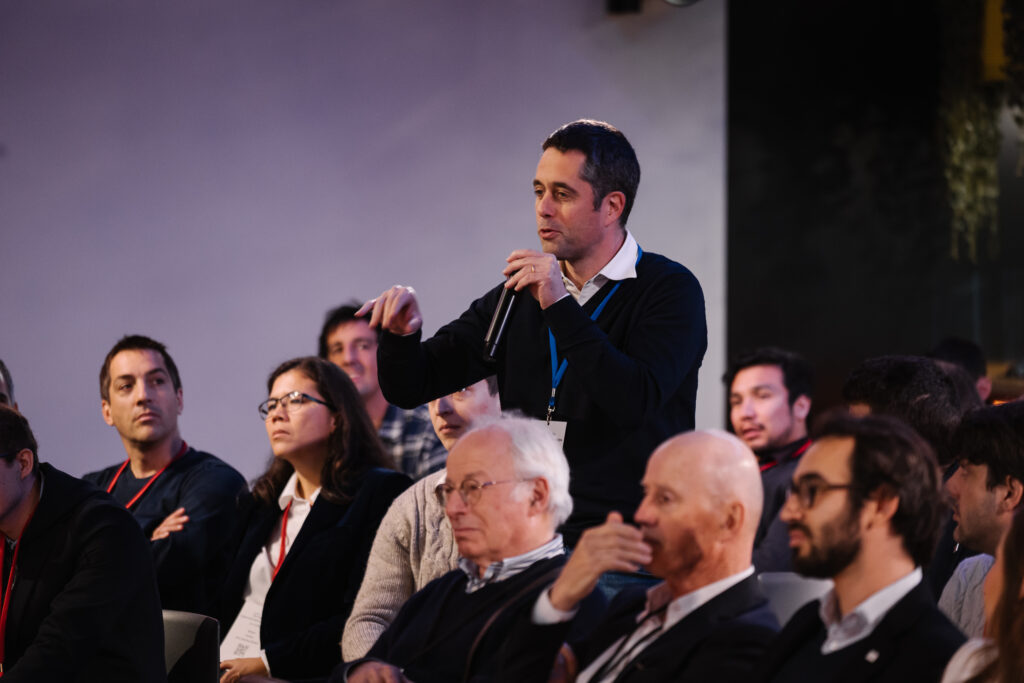
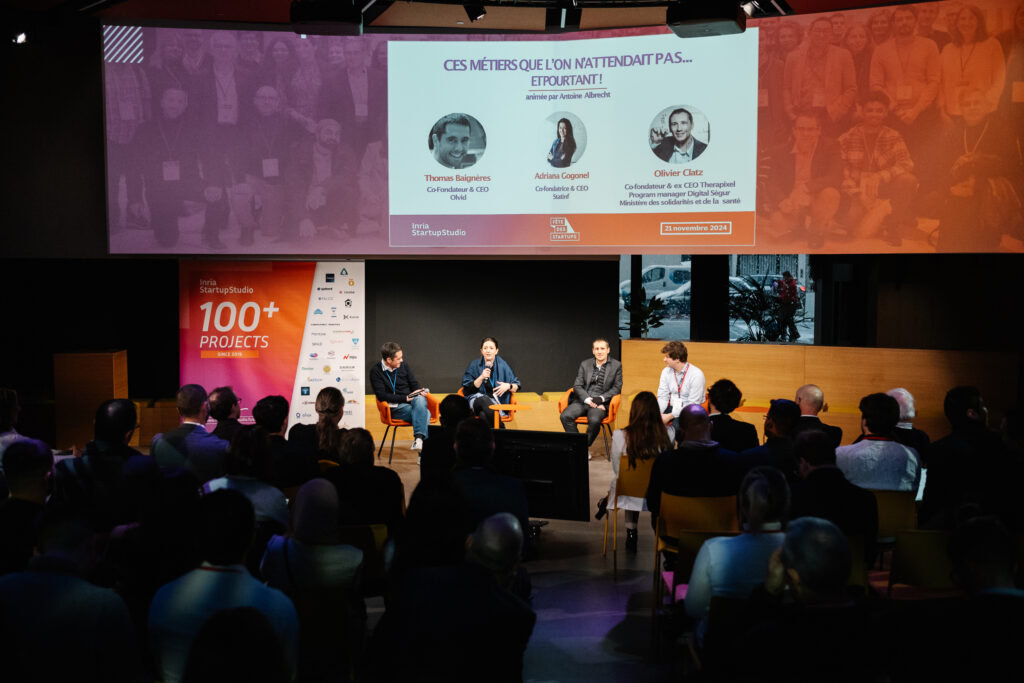
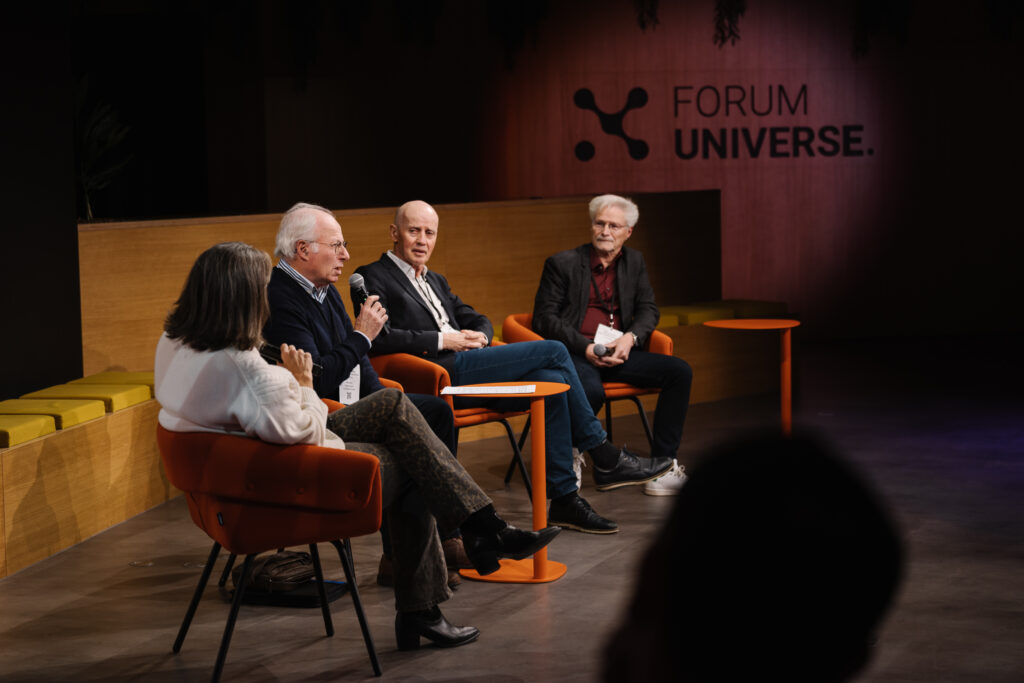
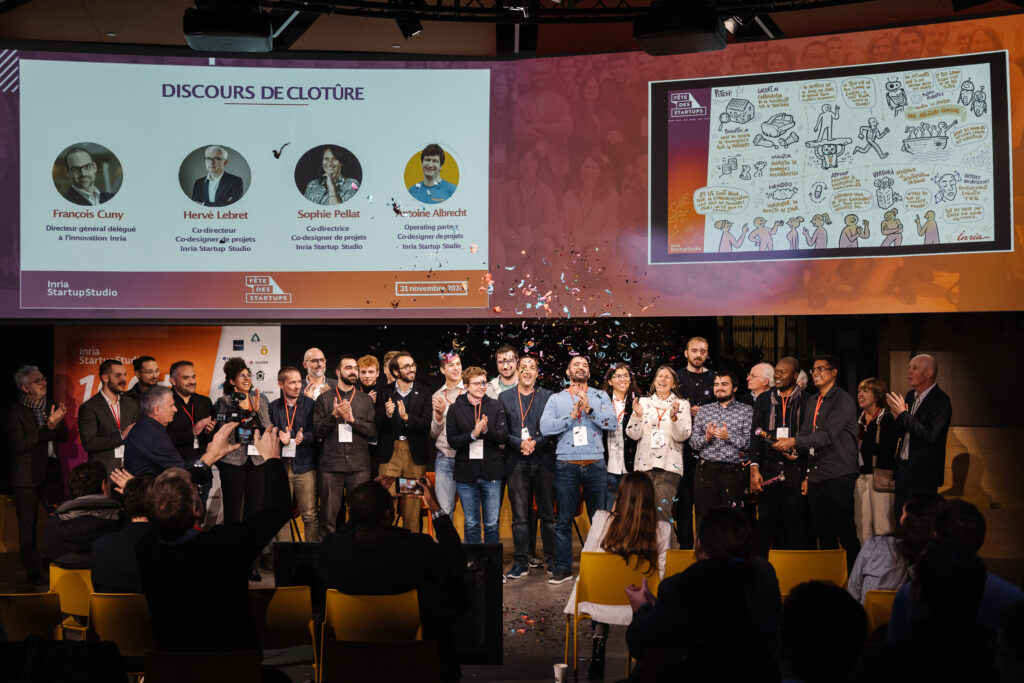
It’s all about the team
Many of the speakers at this Fête des startups 2024 talk about how difficult it is for them to juggle their family life with their entrepreneurial life, which is fraught with difficulties, setbacks and doubts. Whether it’s paying salaries, laying off staff or filing for bankruptcy… “If you want to sleep well at night, do something else,” advises François Bancilhon, who has filed for bankruptcy three times in his career. For his part, Michel Gien has never filed for bankruptcy, but has already sold at a low price to buyers, if only to preserve the business: “What’s important in a company is the team that helps us create it. When you manage to build a team in which people are involved and adhere to the project and values, it’s an extremely enriching experience.” At least, on a human level: “At Chorus, we were faced with the need to lay off staff because we could no longer afford to continue with everyone… People preferred to reduce their salaries to avoid this. Success is the exception that proves the rule; most of the time, we just try to keep the business going.”
Matthieu Lapeyre’s testimonial at the end of the Fête des Startups illustrates this point: “When you benefit from Inria funding, you can give free rein to your creativity. Then, when you run into money problems, you have a very hard time. But I’ve learned that you don’t die when you reach zero cash flow: you die when you decide to be dead. In 2022, we held out and finally obtained two million dollars thanks to a prize, after our banker agreed to increase our overdraft from minus 50,000 to minus 100,000 euros”, he explains, before returning to the very special organization of Pollen Robotics: ”The team is central. We put all our focus on choosing the right people and setting up a governance structure that allows them to express themselves. In hard times, many of them agreed to postpone their salaries. They could also have doubled or tripled their remuneration by working elsewhere, but they stay for the atmosphere and the meaning given to the project.”
France and the United States: two complementary models?
This raises the question of how to ensure the economic profitability of these startups. “In France, it’s often said that there are researchers and ideas, but unlike in the United States, it’s difficult to convert these ideas into value for the market”, observes Graham Steel, founder of Cryptosense, who, at the round table dedicated to the role of tech in a startup’s success, advises entrepreneurs to think big from the outset: ”from the start, we wanted to make the best product, not in France, but in the world! This enabled us to talk quickly with American banks, who are leaders in applied cryptography and who more easily became real customers.”
An observation shared a few moments later by Stéphane Donikian, founder of Golaem: “We’d have been dead from the start if we’d tried to sell only in France! Initially, we collaborated with the research teams of major accounts, but as soon as you leave the POC and have to discuss with the business unit, it’s very difficult to close deals, even in an innovative market like special effects. We signed our first French customer when we were already well established in the USA, UK and Japan.” Véronique Jacq, in charge of Bpifrance’s Digital Venture fund, commented: “Given the different levels of digitalization of our economies, it’s easier to go and find American customers first, before coming back to convince French companies to adopt a new technology. What’s more, it gives you a head start on any American competitors who might be lagging behind you.”
France thus remains a fertile ground for innovation, and perhaps one of the most propitious for the emergence of innovative solutions: “For a long time, the United States was also an ideal place to raise funds quickly and expand. But as long as you need the brainpower to turn a technology into a product, France is one of the best ecosystems for a startup to take its first steps.” The fact remains, however, that as soon as a startup wants to take its product to the next level, it needs financing and must make new strategic choices.
Between fundraising and bootstrapping
“Cash is king”, sums up François Bancilhon, at the ‘veterans’ round table. “If you can generate positive cash flow, you don’t depend on anyone! He is joined on the same round table by Michel Gien, who, like Matthieu Lapeyre of Pollen Robotics, clearly advises researchers tempted by the entrepreneurial adventure to focus on what was not yet called “bootstrapping” in his day, and more generally to “be wary of VCs. They are partners, who provide the necessary money, but who are subject to change within the funds. The best money is customers’ money! On the one hand, because they’re paying for your products, but also because if they’re paying for your products, they have a vested interest in your startup not dying and continuing to supply them!” says the co-founder of Chorus Système, who took advantage of this situation when the company was bought out by Sun Microsystem: ”Initially, it reassured our customers, who were quite stressed to know that, at the height of the mobile boom, their operating system was being managed by a small French company. But when Sun abandoned telecoms to refocus on enterprise computing, these customers mobilized to ensure our survival.”
Lastly, these financing issues highlight another difference between France and the United States: “The term ‘venture capital’ clearly shows the difference in approach between France and the United States, where we speak of Venture Capital… On the one hand, adventure, on the other, risk. That says a lot!” says Jean-François Abramatic, former president of 3WC. This situation is also encountered at the end of a project, when it comes to valuing and selling a startup: “In France, we use multiples of Ebitda or sales, whereas in the United States, it’s easier to value the technology and brains we buy”, explains Stéphane Donikian. This is demonstrated by Graham Steel, who sold Cryptosense to SandboxAQ in 2022, mainly on the basis of its technology, rather than on the value of its existing business: “Our plan was to scale up and move to the USA, but the health crisis changed all that. At the time of the buyout, we knew that Sandbox AQ was a well-capitalized GoogleX spin-off, that the project was considered strategic because Eric Schmidt was its chairman, and that they wanted to break into the cryptographic sector quickly. We held the key to this development. After an initial offer close to zero – that’s the game – a game of liar’s poker began, during which we weren’t interested in selling, until the offer became impossible to refuse.” It’s a fate we hope will be shared by all the project leaders supported by Inria Startup Studio.
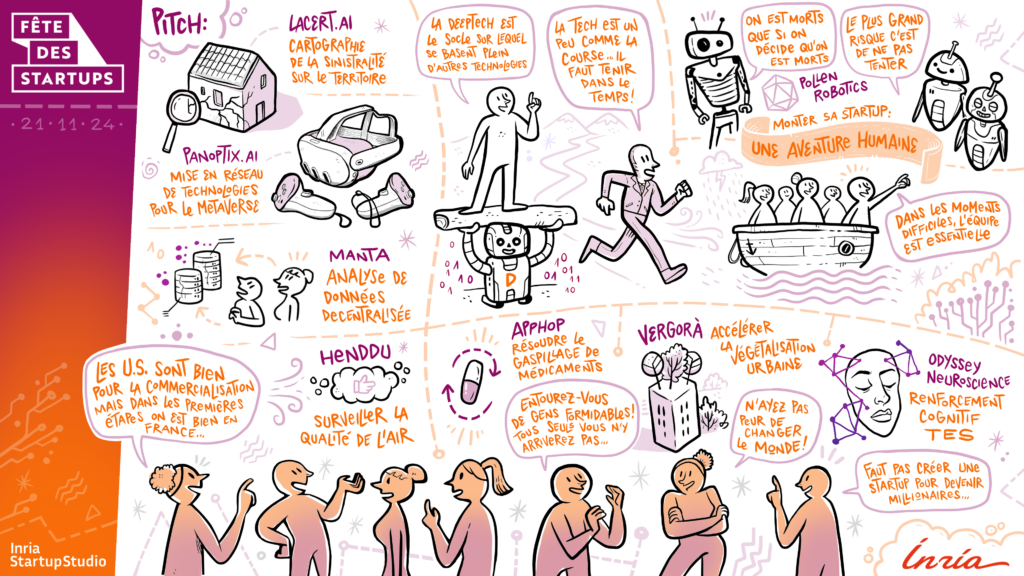
Publication date: 10/02/2025
Want to get started ?
